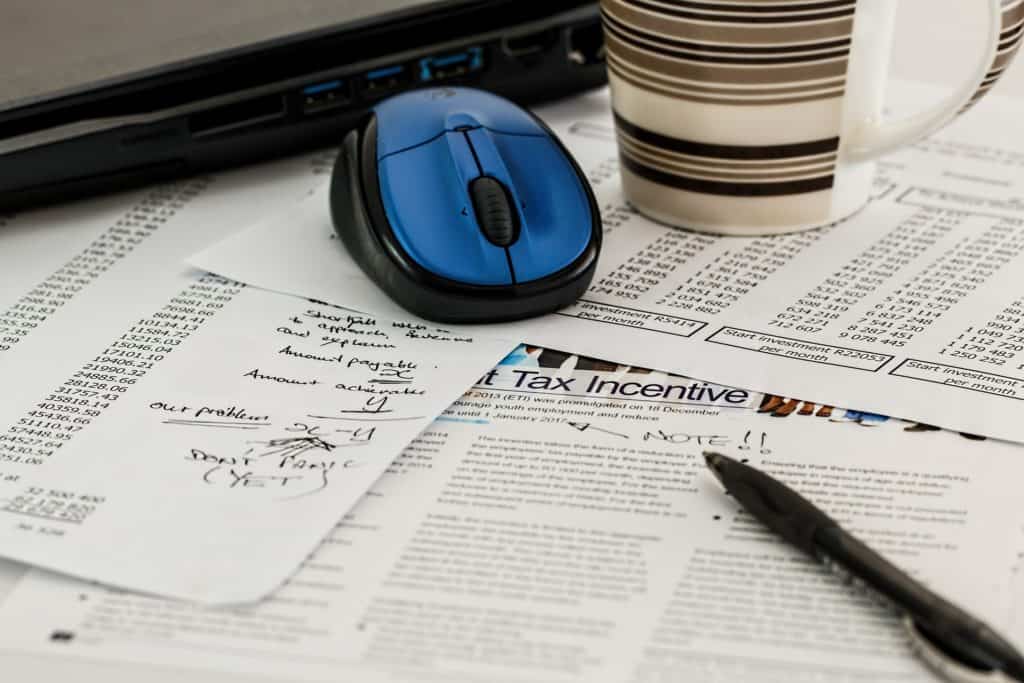With Tax Day on April 15th quickly approaching, time is running out to file your federal tax return. Considering the time it will take to prepare all of the necessary documents and fill out several forms, filing your tax return is not something to wait on doing. As the owner of a small business, you have even more forms to complete between your personal and business taxes. Below are several tips to help you get started filing as soon as possible.
Filing Business vs. Personal Returns
The types of forms you’ll use to file your federal tax return will depend on the business structure. This will also have an effect on your personal return as well. There are different forms you’ll need for the various business structures:
Sole Proprietorship
 A business tax return is probably the simplest if your business is structured as a sole proprietorship. As the sole proprietor, there is no distinction between you and the business. This means that your business return can be filed alongside your personal income forms. All you need to do is fill out a Schedule C form as an attachment with your personal 1040 Form.
A business tax return is probably the simplest if your business is structured as a sole proprietorship. As the sole proprietor, there is no distinction between you and the business. This means that your business return can be filed alongside your personal income forms. All you need to do is fill out a Schedule C form as an attachment with your personal 1040 Form.
One thing to look out for with sole proprietorships is that you’ll also need to pay self-employment taxes—the current rate is 15.3 percent.
Once it’s time to receive your tax refund, both your business and personal returns will come as one refund. The best way to properly separate them is by directly depositing the refund into your personal bank account, and then transferring part of the balance back into your separate business account—if you have one.
Online banking makes this process easy by allowing you to transfer these funds directly from a mobile app as soon as your refund is deposited.
S-Corp
Since S-Corps are considered pass-through entities, the shareholders will report income and loss statements on their own personal tax returns. This is one of the main benefits of filing as an S-Corp because you’ll avoid double taxation on the corporate level. However, S-Corps still require a separate Form 1120S for reporting passive income.
One consideration when filing Form 1120S is that the deadline is different from your personal returns. Whereas Tax Day is April 15th, the deadline for S-Corps is the 15th day of the third month since the close of the tax year. Generally, this deadline will be March 15th.
C-Corp
Filing as a C-Corp has similarities to both sole proprietorship and S-Corp returns, although it’s unique as well. Unlike an S-Corp, income is taxed on the corporate level for C-Corps.
You’ll use Form 1120 to submit this return. Rather than reporting income from the corporation on personal returns, shareholders will report their dividends from the business. C-Corps are taxed at the corporate tax rate of 21 percent.
C-Corp tax filings must be done separately from personal forms. However, unlike with an S-Corp, the filing deadline for a C-Corp is the same as the personal deadline—April 15th.
Limited Liability Company (LLC)
Filing a tax return for an LLC is dependent on the type of ownership. If you are the sole owner, you can file your taxes much like a sole proprietorship and use the Schedule C attachment with your personal return.
However, if you choose to treat your LLC as a corporation, you’ll require a different set of forms—such as Form 1120. The IRS website has all of the necessary instructions for classifying an LLC.
Get Tax Help
Depending on the structure of your business, tax filing can be complicated and time-consuming—especially when done separately from your personal forms. Luckily, there are some options to make the process easier and provide assistance along the way.
Hiring a Tax Professional
 Using a tax professional is the easiest way to file tax returns for your small business. These experts will do most of the work for you and will maximize your return. There are a few different types of tax professionals, including tax attorneys, certified public accountants (CPAs) and enrolled agents.
Using a tax professional is the easiest way to file tax returns for your small business. These experts will do most of the work for you and will maximize your return. There are a few different types of tax professionals, including tax attorneys, certified public accountants (CPAs) and enrolled agents.
The one downside to hiring a tax professional is that it’s typically the most expensive option. However, it can be worth it depending on how much time you save and the size of your refund.
Tax Preparation Softwares
Another way to get assistance is through the help of tax preparation software that specialize in small businesses. This software guides you along the way on how to fill out all of the necessary forms. Since the software is electronic, your return will be processed quicker and your refund will arrive sooner when compared to paper forms.
Another bonus is that software can do most of the calculations for you. One downfall to consider is that using tax software will require more time on your end, as well as a bit of familiarity with the process.
Deductions for Small Businesses
One way to make the most out of your tax return is to seek out all of the deductions for which your small business is eligible. Fortunately, there is a multitude of options depending on the structure of your business and specific situations.
Qualified Bonus Income
One of the most common tax deductions for small business owners is qualified bonus income. This will apply to all of the business structures listed previously, except for C-Corps. Small businesses that qualify for this deduction will be able to write-off 20 percent of their income.
However, there are some limitations for businesses that earn higher incomes—these take effect at $157,500 for individual returns and $315,000 for joint returns.
Home Office Space
Another popular deduction is for home office space. Small business owners could be eligible to write-off up to $1,500 or more to cover expenses associated with a home office. The size of the deduction will be dependent on the size of the home office, as well as the deduction method—you can choose between the simplified version or actual expense option.
However, with any tax deductions, there are requirements that must be met. Your home office must be designated solely for business purposes and utilized on a consistent basis, among other stipulations.
Conclusion
There are only several weeks left to file your tax return. As the owner of a small business, your tax return is undoubtedly more complicated than the average citizen’s. You should start the process right away if you haven’t already.
Luckily, there are plenty of resources readily available to assist you with filing your return. If necessary, it could be possible to file for a deadline extension as well. Hopefully, these tips allow you to make the most of your small business tax return.
